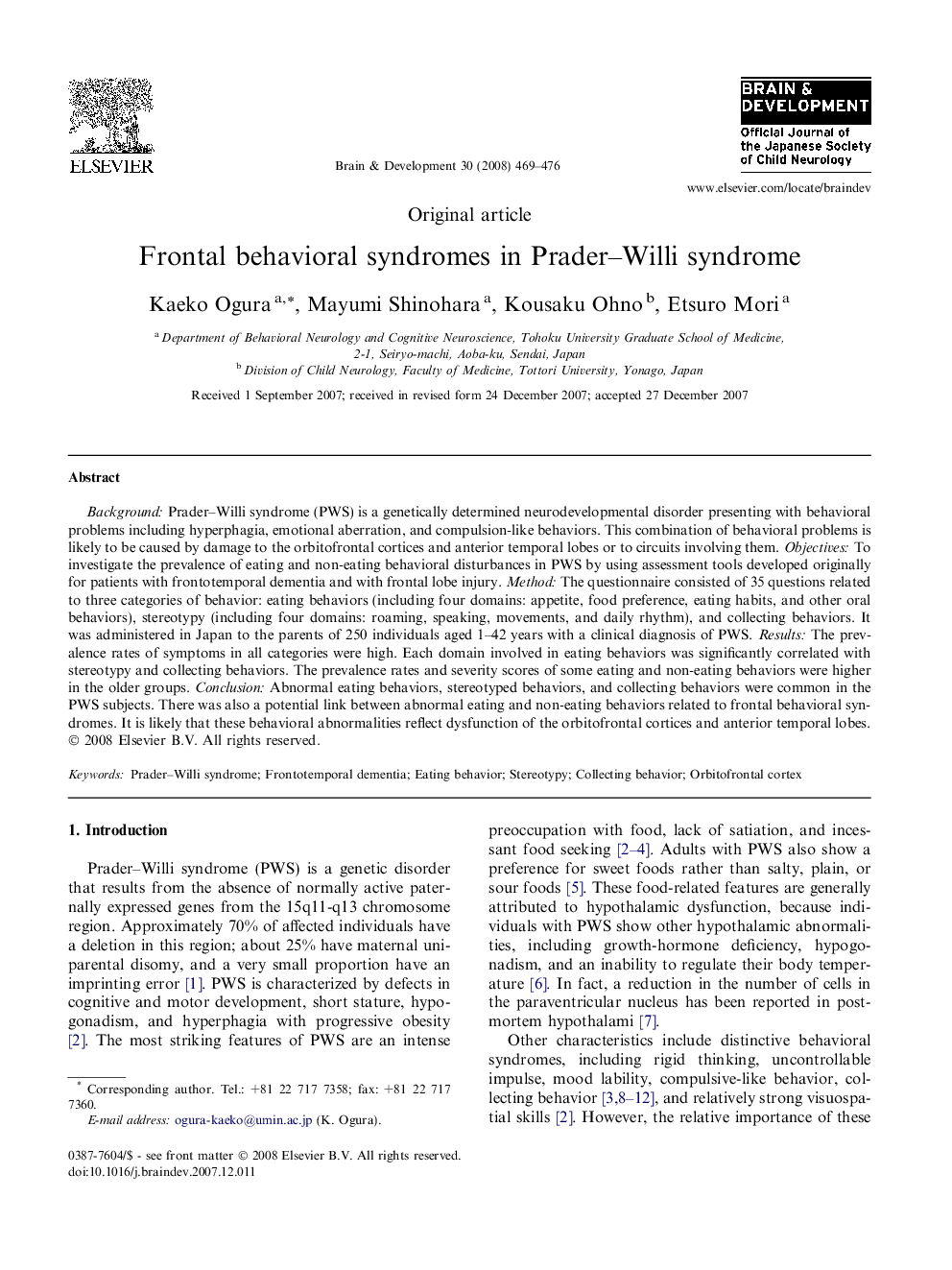| Article ID | Journal | Published Year | Pages | File Type |
|---|---|---|---|---|
| 3038016 | Brain and Development | 2008 | 8 Pages |
Background: Prader–Willi syndrome (PWS) is a genetically determined neurodevelopmental disorder presenting with behavioral problems including hyperphagia, emotional aberration, and compulsion-like behaviors. This combination of behavioral problems is likely to be caused by damage to the orbitofrontal cortices and anterior temporal lobes or to circuits involving them. Objectives: To investigate the prevalence of eating and non-eating behavioral disturbances in PWS by using assessment tools developed originally for patients with frontotemporal dementia and with frontal lobe injury. Method: The questionnaire consisted of 35 questions related to three categories of behavior: eating behaviors (including four domains: appetite, food preference, eating habits, and other oral behaviors), stereotypy (including four domains: roaming, speaking, movements, and daily rhythm), and collecting behaviors. It was administered in Japan to the parents of 250 individuals aged 1–42 years with a clinical diagnosis of PWS. Results: The prevalence rates of symptoms in all categories were high. Each domain involved in eating behaviors was significantly correlated with stereotypy and collecting behaviors. The prevalence rates and severity scores of some eating and non-eating behaviors were higher in the older groups. Conclusion: Abnormal eating behaviors, stereotyped behaviors, and collecting behaviors were common in the PWS subjects. There was also a potential link between abnormal eating and non-eating behaviors related to frontal behavioral syndromes. It is likely that these behavioral abnormalities reflect dysfunction of the orbitofrontal cortices and anterior temporal lobes.
